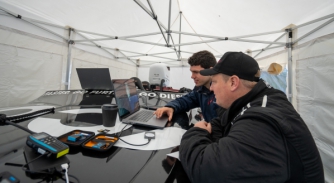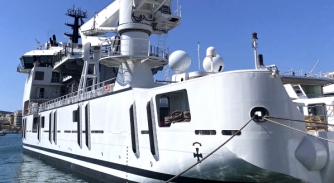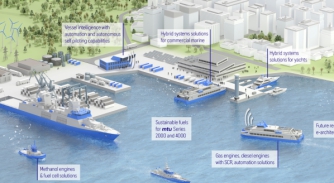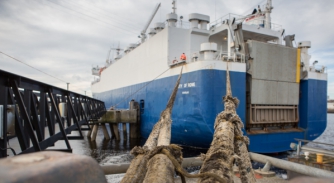Biofuel plant to open in Spain
Mediterranean capacity of 2nd gen and advanced biofuels to increase with petrochemical giant Repsol to start production at Cartagena facility…
The European Investment Bank (EIB) is providing a EUR 120 million loan to Spanish multinational energy and petrochemical company Repsol to support the construction and operation of the first advanced biofuels production plant at the company's facilities in Cartagena, on the Mediterranean coast of Spain.
The plant will produce second-generation and advanced biofuels from different types of waste primarily from the agri-food industry, such as used cooking oils, as part of the transition process towards a more circular economy. Construction work began in March this year and is scheduled for completion in the second half of 2023.
Biofuels offer one of the most immediately implementable means of relieving the dependence on traditional fossil fuels. Compatible with most conventional diesel engines, the greatly reduced carbon emissions are an obvious advantage. One of the primary concerns to its adoption is the relative lack of infrastructure globally. This large investment in the Mediterranean offers a significant boost to the accessibility of decarbonised fuels for the transport and marine sector.
The other most commonly sighted issue with biofuel adoption is that of food security and a perceived false carbon economy in its production. First-generation biofuels are produced from feedstocks that are used for food or animal feed, such as corn, wheat, and soybeans. These biofuels are typically made through fermentation, in which sugars in the feedstock are converted into ethanol or another biofuel.
While second-generation biofuels are derived from a broad range of biogenic residues including used cooking oils, certain animal fats and vegetable oils that cannot be used as food or are derived from crops that do not compete with food, advanced biofuels are produced specifically from a subset of biogenic feedstocks listed in Part A of Annex IX of the REDII directive.
The key difference between first- and second-generation/advanced biofuels is their impact on food security. First-generation biofuels can compete with food crops for land and resources, which can drive up food prices and reduce food availability. Second-generation biofuels, on the other hand, do not compete with food crops and can be produced using non-arable land, waste products, and other resources that would otherwise go to waste. As a result, second-generation and advanced biofuels have the potential to be more sustainable and have a more minor impact on the environment and food production.
These biofuels have a particular impact on all transportation segments, especially those that have no choice but to decarbonise, such as maritime. They can reduce net CO2 emissions by between 70 per cent and 90 per cent compared with traditional fuels that they replace.
The production plant will be located within the premises of Repsol’s industrial complex in Cartagena, Region of Murcia - an EU cohesion region. The plant will process 300,000 tons per annum (TPA) of lipidic residues for the production of up to 250,000 TPA of 2nd generation or/and advanced biofuels for the transport sector.
Speaking at the signature event in Madrid, EIB Vice President, Ricardo Mourinho Félix said: “The EIB is committed to financing green transformation, the use of alternative energy sources and innovative research programs across Europe. The EIB loan contributes to Repsol’s strategy to transform its business model and to its decarbonization strategy. We are pleased to be collaborating with companies such as Repsol which are taking steps towards decarbonizing business activity and strengthening resilience to climate change.”
Commenting on the agreement, Repsol’s CFO, Antonio Lorenzo, concluded: “We are proud to be the first company in the sector to obtain this type of financing, which is a result of our commitment to executing ground-breaking projects in support of a rapid, effective and just energy transition.”
Main image credit: Repsol
NEW: Sign up for SuperyachtNewsweek!
Get the latest weekly news, in-depth reports, intelligence, and strategic insights, delivered directly from The Superyacht Group's editors and market analysts.
Stay at the forefront of the superyacht industry with SuperyachtNewsweek
Click here to become part of The Superyacht Group community, and join us in our mission to make this industry accessible to all, and prosperous for the long-term. We are offering access to the superyacht industry’s most comprehensive and longstanding archive of business-critical information, as well as a comprehensive, real-time superyacht fleet database, for just £10 per month, because we are One Industry with One Mission. Sign up here.
Related news

Speed record and HVO parity for COX Marine
British industry innovator, COX Marine, continues to push the performance envelope for its 300hp outboard
Technology

Biocide Overuse: A cause for concern in superyacht maintenance?
Pierre Poitras, Technical Consultant at Conidia Bioscience explains why biocides are not necessarily the way to go for the future.
Crew

Rolls Royce to present roadmap to net zero
The seminar, at SMM Hamburg 6-9 September, will cover sustainable fuels, alternative propulsion systems and intelligent ship automation
Technology

Straight to the source
How can The National Grid and UK commercial ports inform the superyacht industry's decarbonisation strategy?
Technology

Defining sustainability - EU Taxonomy Regulation
A profound conversation with Dr Vienna Eleuteri, initiator & vice chair of Water Revolution Foundation
Business
Related news
Speed record and HVO parity for COX Marine
2 years ago
Rolls Royce to present roadmap to net zero
3 years ago
Straight to the source
3 years ago
Defining sustainability - EU Taxonomy Regulation
3 years ago
NEW: Sign up for
SuperyachtNewsweek!
Get the latest weekly news, in-depth reports, intelligence, and strategic insights, delivered directly from The Superyacht Group's editors and market analysts.
Stay at the forefront of the superyacht industry with SuperyachtNewsweek



